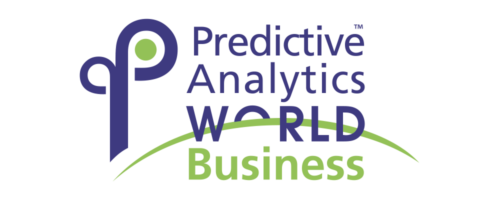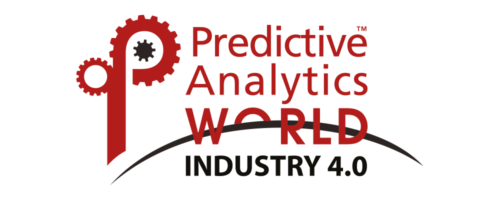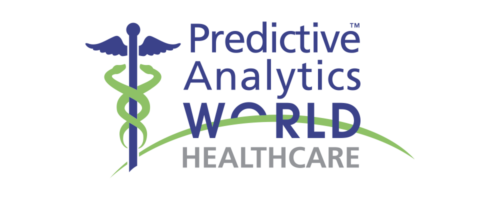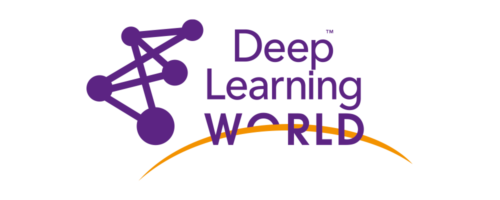
Guiding Theme 2022
Let's talk about predictive analytics – in person!
Predictive Analytics World (PAW) for Business is back in Berlin! And it is complemented for the first time by the PAW for Financial conference. PAW for Industry 4.0, PAW for Healthcare and Deep Learning World will also take place in Berlin and together they make up
Machine Learning Week Europe.
Join us and you will learn a lot about applied machine learning for multiple industries and in the case of PAW Business especially for the areas of marketing, sales, service, e-commerce, and media.
The presentations at PAW Financial, on the other hand, focus on banking, investments, real estate, and insurance.
Join an exciting community of experienced data science practitioners and learn from well-known experts from leading corporate and big tech companies. See you in Berlin in October for two days of numerous case studies, deep dives and keynotes!
-
Data Engineering & Model Management
- Data Lakes & Pipelines
- Data & Software Architecture
- Model Automation & Evaluation
- Feature Engineering & Management
- Microservices & Data/Model-as-a-Service
-
Data Management & Strategy
- Data & Design Thinking
- Customer Data Platforms & Data Management Platforms
- Data Labs vs. Data Ops
- Data Culture & Literacy
- Meta Data & Data Quality Management
- Data Sourcing & Governance
-
Machine & Deep Learning
- Data, Text, Stream, Process & Network Mining
- Times Series Models
- Bayesian Learning
- Ensemble Learning
- Transfer Learning
- Reinforcement Learning
- RNN, CNN & GAN
- Markov-Ketten & Monte-Carlo-Simulationen
-
Marketing & Sales
- Marketing Mix Modelling
- Predictive Lead Scoring
- Customer Lifetime Value
- Affinity Scoring
- Churn Prevention
- Chat Bots
-
Advanced Marketing & Sales Analytics
- Dynamic & Multitouch Attribution
- Marketing Mix Modelling
- Churn Prediction & Prevention
- Customer Lifetime Value
- Lead & Affinity Scoring
- Customer Segmentation vs. Persona
- Demand & Revenue Forecast
- Response & Uplift Modelling
- Recommender Systems
-
Marketing & Sales
- Marketing Mix Modelling
- Predictive Lead Scoring
- Customer Lifetime Value
- Affinity Scoring
- Churn Prevention
- Chat Bots
-
E-Commerce & Online-Marketing
- Dynamic Attribution
- Dynamic Pricing
- Dynamic Couponing
- Bid Optimization
- Website Personalization
-
Supply Chain & Process Optimization
- Demand Forecast
- Inventory Optimization
- Route Optimization
- Process Mining
-
Finance & Insurance
- Risk Scoring
- Fraud Detection
- Anomaly Detection
- Visual Inspection
- Robo Advisory
-
HR & E-Learning
- Churn Prediction
- Applicant Scoring
- Intelligent Assistants
Predictive Analytics World in numbers
Years
Locations
Total Events
Speakers
Sessions
Companies
Impressions of previous events
Testimonials
What do our attendees say?
The Venue
Radisson Collection Berlin
Karl-Liebknecht-Str. 3
10178 Berlin
Germany
Web: www.radissonhotels.com/en-us/hotels/radisson-collection-berlin
Phone: +49 30 238 280
Email: info.berlin@radissoncollection.com
Partners 2022
Need more information?
-
What is predictive analytics?
Predictive analytics optimizes marketing campaigns and website behavior to increase customer responses, conversions and clicks, and to decrease churn. Each customer’s predictive score informs actions to be taken with that customer — business intelligence just doesn’t get more actionable than that.
Predictive analytics is business intelligence technology that produces a predictive score for each customer or other organizational element. Assigning these predictive scores is the job of a predictive model which has, in turn, been trained over your data, learning from the experience of your organization.
-
Is predictive analytics different from forecasting?
Predictive Analytics World London often include select sessions on forecasting since it is a closely related area, and, in some cases, predictive analytics is used as a component to build a forecast model.
However, Predictive analytics is something else entirely, going beyond standard forecasting by producing a predictive score for each customer or other organizational element. In contrast, forecasting provides overall aggregate estimates, such as the total number of purchases next quarter. For example, forecasting might estimate the total number of ice cream cones to be purchased in a certain region, while predictive analytics tells you which individual customers are likely to buy an ice cream cone. -
Is this a “machine learning” conference?
Yes. Predictive analytics means the commercial deployment of machine learning (the two terms are often used synonymously). Although the term “machine learning” used to be common only within the walls of research labs, it’s now also used more and more in the context of commercial deployment. Whichever term you prefer, we are discussing technology that learns from data to predict or infer an unknown, including decision trees, logistic regression, neural networks, and many other methods.
-
Is this a “data mining” conference?
Yes. Data mining is often used synonymously with predictive analytics, and, in any case, predictive analytics is a type of data mining.
-
Is this a “data science” conference?
Yes. Predictive analytics is a form of data science. Moreover, it is the most actionable form. A predictive model generates a predictive score for each individual, which in turn directly informs decisions for that individual, e.g., whether to contact, extend a retention offer, approve for credit, investigate for fraud, or apply a certain medical treatment. Rather than solely providing insights, predictive analytics directly drives or informs millions of operational decisions.
-
Is this a “big data” conference?
Yes. Predictive analytics is a key method to truly leverage big data. At the center of the big data revolution is prediction. The whole point of data is to learn from it to predict. What is the value, the function, the purpose? Predictions drive and render more effective the millions of organizational operational decisions taken every day.
-
Is this an AI conference?
Yes. Artificial intelligence (AI) is a broad, subjective term with many possible definitions—but by any definition, it always includes machine learning (predictive modeling) as an example of AI technology/capabilities.
-
Is Predictive Analytics World run by a software vendor?
No. Predictive Analytics World provides a balanced view of predictive analytics methods and tools across software vendors and solution providers.
-
Is Predictive Analytics World a research conference?
No. Predictive Analytics World is focused on today’s commercial deployment of predictive analytics, rather than academic or R&D activities. Separately, there are a number of research-oriented conferences; in predictive analytics’ commercial application, we are essentially standing on the shoulders of those giants known as researchers.
-
Are you considering new speakers for Predictive Analytics World?
For speaker information and proposal submissions, click here.





























